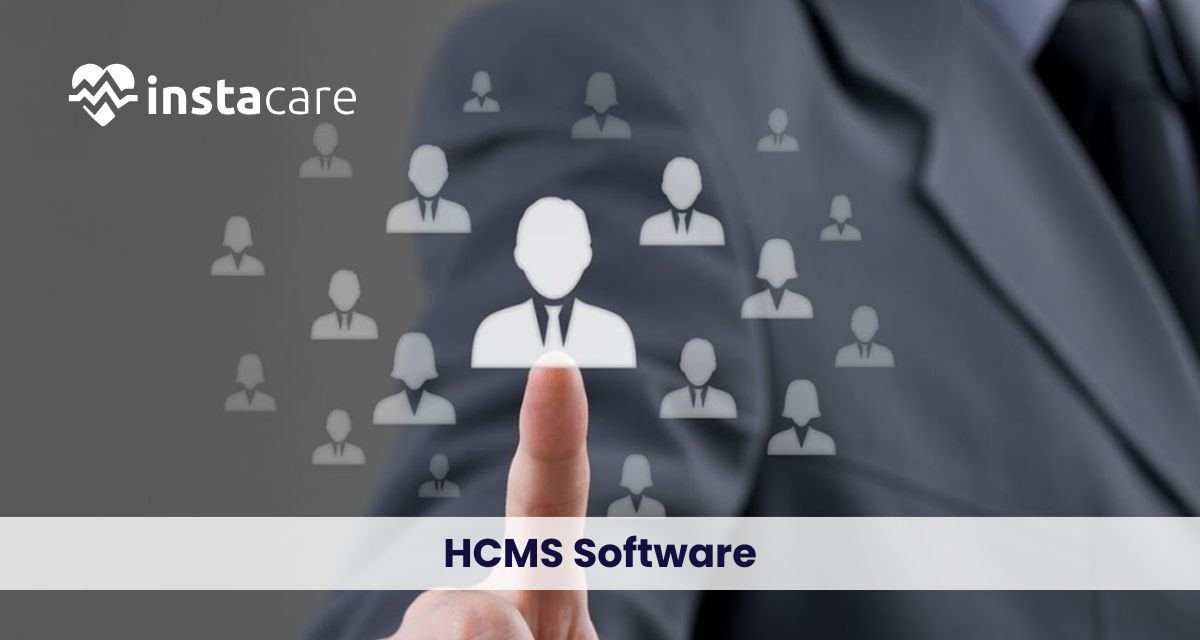Last updated on Friday, 7, November, 2025
Table of Contents
HCMS Software: Streamlining Healthcare Management with Smart Digital Solutions
In the modern day technological world, healthcare institutions are ever-changing, in a bid to better patient care, operational effectiveness, and data security. Without the help of computers, it may be difficult to manage a lot of clinical and administrative data. It is at this point that a superior healthcare content management system.
The HCMS software is meant to support clinic workflow, patient records, and administrative records in a well-organized manner to ensure that hospitals and clinics run smoothly without failing to satisfy the regulations and patients.
What Is HCMS Software?
HCMS in healthcare can be defined as a unified digital platform that handles, structures, and safeguards healthcare-related data, records and processes. It is a centralized solution that links different departments of a hospital, including admissions and billing, diagnostics and patient management.
Hospital content management software is unlike the traditional manual system which makes sure that data is readily available in real-time improving the flow of information within the hospital and enabling healthcare professionals to make decisions based on data. It combines various healthcare operations such as patient records, scheduling and document storage into a single system.
Core Features of HCMS Software
A good hospital information management software would have all the tools needed to streamline all the complicated activities. Common features are usually:
- Centralized Data Repository: A repository that holds all the patient, administrative and clinical data in a secure central repository.
- Medical Document Management Software: Facilitates the simple storage, retrieval and sharing of medical documents.
- Automation of Workflow in Healthcare: Automation of monotonous activities like scheduling appointments, billing, and reporting.
- Electronic Health Record Integration: Integrates patient information across multiple systems to form a single medical record perspective.
- Healthcare Compliance Management: Provides compliance with both local and international healthcare rules.
- Patient Record Management System: Keeps proper and updated patient records, laboratory tests, and treatment.
- Healthcare Data Management System: Sorts data analytics, reporting, and insights on performance improvement.
The features enable the healthcare facilities to provide quality services and ensure transparency and control of their operations.
Benefits of Implementing HCMS Software
The benefits of HCMS software are quite many and have a direct impact on the clinical productivity and patient satisfaction.
- Improved Efficacy: healthcare workflow automation lowers paperwork, decreases administrative lag times and liberates personnel to attend to patients.
- Greater Accuracy: Digital data management has low chances of error in patient records and billing by humans.
- Real-Time Data Access: Anywhere, clinicians can have access to patient histories, lab results, and medical reports.
- Data Protection: Sensitive patient information against unauthorized access and breaches is guaranteed with medical data security software.
- Regulatory Compliance: Inbuilt tools assist hospitals to remain in line with the data protection laws as well as the healthcare privacy laws.
- Cost-Effectiveness: Eliminating manual operations and records decreases the cost of operations in the long run.
- Improved Patient Experience: Reduced registration time, fast access to medical history, and smooth appointment management increase the level of patient satisfaction.
These advantages demonstrate that the use of digitalization in the form of HCMS has a great influence on the delivery of healthcare services.
How HCMS Software Works?
HCMS software works on the principle of linking all the elements of the ecosystem of a healthcare facility into a single digital network. When installed, it integrates patient records, medical records and administrative data in a central repository. Employees are then able to access and update information with authorized interfaces and there is the smooth flow of information between the departments.
Once a patient enters into the hospital, all the data of the patient is stored in the patient record management system that is automatically updated in other modules, like billing and lab records. The electronic health record integration option will make sure that the patient information provided by other healthcare systems is aligned. All in all, the workflow automation process decreases redundancy, increases accuracy, and contributes to the evidence-based care decision.
Choosing the Right HCMS Software
The choice of the best system is dependent on your size, budget and operational needs of your organization. Healthcare facilities must focus on scalability, ease of the user interface, and support by the vendor when selecting cloud-based HCMS solutions. The deployment of cloud means that the information of multiple branches can be accessed in real-time, which is perfect in large healthcare networks.
The main issues to consider are:
- Integration with pre-existing healthcare IT solutions.
- Security and certification certifications.
- Simple connection with third-party tools and databases.
- After sales technical support and training.
- Flexibility in customization as per the departmental requirements.
Careful choice of a solution will guarantee the adoption process is smoother and efficiency will be increased in the long term.
Use Cases Across Healthcare Sectors
The HCMS software is useful in different fields of healthcare, including small clinics and large hospitals and research centers. For example:
- Hospitals: HCMS can be used to schedule, centralize data, and analyze performance.
- Clinics: Enjoy ease of appointment and billing services.
- Laboratories: Store test records, reports and compliance documents electronically.
- Pharmacies: Pharmacy is tracking inventory and prescription data.
- Public Health Organizations: Population health analytics and policy development.
This flexibility renders HCMS unavoidable throughout the healthcare ecosystem.
Book Your Free Marketing Consultation
Future of HCMS Software
The future of HCMS software is in the further digital revolution of healthcare. Predictive data analysis, disease forecasting and personalized treatment planning are all fields that artificial intelligence (AI) and machine learning will make significant contributions.
Real-time data monitoring of patients will also continue to increase, as more Internet of Things (IoT) devices are integrated to provide even more opportunities to monitor the patient.
In addition, the increasing need of IT-related solutions in healthcare will promote the interoperability of hospitals, clinics, and telemedicine platforms, which will allow adhering to a single approach in care delivery.
Challenges in Implementation
Although it has benefits, installing HCMS software is not an easy task:
- Expensive Startup Prices: The cost of setting up, licensing and customization can be quite high, particularly to smaller entities.
- Training Needs: Employees might require technical training to get accustomed to the emerging digital processes.
- Data Migration: The transformation of old paper-based or legacy data to the new one can be time-consuming.
- Integration Problems: There may be compatibility problems with the existing hospital systems.
- Resistance to Change: Some employees might be comfortable with manual processes as compared to the automated systems.
Conclusion
HCMS software is transforming the healthcare environment as it automates work processes, provides security in the handling of data and enhances operational efficiency. It allows different departments to work in sync with each other through patient registration to billing and quality of care. Patient data, compliance, and other documents can be managed effectively by using hospital content management software in hospitals that have adopted the software.
FAQs
What is the HCMS software doing in a hospital?
HCMS software streamlines hospital drier data, patient records, billing, scheduling, and documentation, enhancing efficiency and accuracy in the workflow.
What is the benefit of patient care under HCMS?
Automating tasks and enabling real-time access to data can help doctors make more informed and quicker decisions, and HCMS can improve the patient experience.
Is cloud-based HCMS secure?
Yes, reputable vendors do indeed offer good encryption and authentication systems to provide patient data with a high level of confidentiality and healthcare rules.



